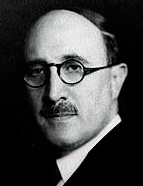

In July of that year, a military coup against the government led by Manuel Azaña sparked the Spanish Civil War. The insurgents, who enjoyed open sympathy from the Portuguese authorities and the more conservative sectors of the country, informed CSA of his dismissal as ambassador. He stayed in Lisbon, offering refuge to those fleeing the occupied areas by welcoming them into the embassy and recording their testimonies. The Salazar regime forbade any expression of support for the Spanish Republican government and isolated the embassy, which no longer received official communications or the funds sent from Spain to cover its staff's salaries and daily expenses. Through clandestine informants, CSA became aware that money was being transferred from Portugal to the Spanish insurgents, and that submarines and boats loaded with weapons — many of them German and Italian — were passing through Portuguese ports headed to unknown destinations. Two police officers working for the embassy disappeared one night and were later traced to Spain, they had been kidnapped and forced to join the ranks of the so-called "bando nacional" [Nationalist faction]. The ambassador's protests went unheard, and the constant threats eventually forced several Spanish diplomats, including the consul, to leave Portugal and flee to France. Spanish fascists and monarchists frequently attacked resident republicans, with the backing of the Portuguese police, and those who managed to escape across the border in search of asylum were often sent back, where they were executed. Under these circumstances, most of the embassy staff resigned.
Salazar feared that the system of government established in Spain since 1931 might spread to Portugal, and he also felt an ideological affinity with the Spanish rebels and the regimes in Germany and Italy. However, in the weeks following the speech, he did not sever relations with the Spanish Republic. CSA, for his part, believed that the Portuguese government was waiting for the Spaniards to take the initiative. He felt that his departure from Lisbon, pressured by the constant threats from the Falangists against him and his children, would provide the pretext for the Portuguese authorities to align with one of the factions. For this reason, he resisted staying in Lisbon until the end of October, when the Salazar regime began to openly support the uprisings. Exiled in Bordeaux, where he held a university professorship partly funded by the Rockefeller Foundation, he managed to return to Spain and recover his files. However, after speaking with the leaders of the Republican faction, he became convinced that the war was lost. In 1939, after his house in Madrid was ransacked, he asked his parents to disinherit him so that the new government could not seize anything else. At that time, with the outbreak of the Second World War and the fear that Bordeaux might be bombed, he was forced to bury his documents in the garden of his house to protect them. When the city was occupied by the Germans, he was forced to flee once again with his documents, but this time without his family. He travelled by boat from Marseille to Algiers, then by train to Casablanca, and finally returned to Lisbon by sailboat. He left Portugal for Rio de Janeiro and, after spending some time at the Universidad de Cuyo [University of Cuyo] in Mendoza (Argentina), he settled in Buenos Aires in 1942.
This work is financed by national funds through FCT - Foundation for Science and Technology, I.P, in the scope of the projects UIDB/04311/2020 and UIDP/04311/2020.
